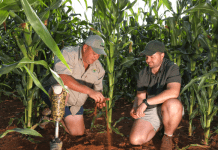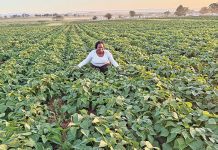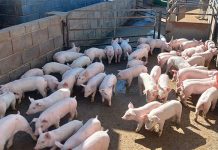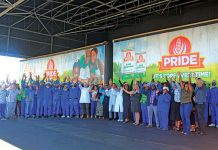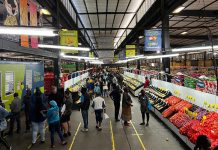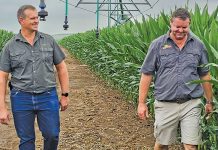
I have had the privilege of living and working in this beautiful country for more than 10 years. While working here, I have had an opportunity to observe South African agriculture first-hand, which has equipped me to be an unbiased observer.
South African agriculture is an incredible quiet success story. The country is one of only two in Africa that can be said to be food secure.
Production has increased steadily throughout the past 30 years, the food that is produced is of the highest quality, and farm gate prices offer some of the most economically produced food in the world.
Farmers are also custodians of the land and are providing an environmental stewardship service that in many other countries would be paid for by the state.
Farmers are suppliers of large amounts of rural labour and many farms act as social security centres, providing additional services such as health, education and other welfare services.
South African farmers have also shown considerable levels of resilience, many having to move off-grid as electricity supply becomes less and less reliable, and often having to repair roads that are considerable distances from their farms.
Agriculture in South Africa contributes immeasurably to economic growth, job creation and food security, yet farmers do not get anything close to the credit they deserve and are often unnecessarily criticised by people who do not really understand the rural economy.
When we look forward at likely trends in the industry, several factors become clearer. Here are my top predictions:
- We are likely to see more weather variability, and generally a drier environment;
- In the short term, it is difficult to see major improvements in electricity and logistic availability, and these factors may indeed worsen;
- The consumer is becoming more sophisticated and more concerned about the origin and contents of the food they eat;
- Exporters are likely to face continued raising of the bar in terms of quality standards and quantity requirements;
- There are likely to be more short-term variations in world food supply and consequently spikes in price and availability of inputs;
- The availability of finance isn’t likely to improve, and lender requirements are likely to become more complicated;
- Some producers will have opportunities to produce new and innovative crops and services, which may enable them to diversify partly or completely out of traditional agricultural production;
- Labour is likely to become more problematic, with increasing costs associated with legislative and welfare compliance; and
- The Africa Free Trade Agreement and enhanced membership of BRICS may open new potential markets for South African producers.
Technology will boost progress
The South African farmer will tackle these issues in a structured and planned way, and there will be increasingly innovative technology available to assist.
And some of this new technology may come from the UK. Included in the areas that offer exciting potential for implementation are:
- Precision agriculture, allowing far more accurate application of fertilisers and chemicals;
- Satellite and application technology allowing a high level of farm management and the ability to make impactful decision-based management in areas such as water management, planting and harvesting;
- Drone technology allowing very accurate assessment of water and/or nutrient stress in horticultural crops, and specific remedies covering the specific affected area;
- Innovative new technology, such as insect protein, which can potentially replace traditional sources of protein in ruminant diets; and
- Biological fertilisers and biological pesticides, which offer sustainable environmentally friendly crop fertilisation and protection.
All the above technological examples are available from UK suppliers selling into the South African market. We can incentivise you to invest in these by making UK export finance available. This offers UK sovereign debt finance options to projects containing at least 20% UK content.
I am convinced that the resilience of South African farmers will enable them to adapt, prosper and grow in the future, and overcome the challenges that will unfold.
The adoption of new and innovative technology will assist, and the UK has many products and services available to help.
The views expressed in our weekly opinion piece do not necessarily reflect those of Farmer’s Weekly.
David Burton is the Agricultural sector director for Africa for the UK Department of Business and Trade. He has over 35 years’ experience in agricultural systems across the world, and has worked in 55 countries, including over 20 in Africa.
He has experience in dairy cow production, rural livelihoods, agricultural trade facilitation, investment and business development. Email [email protected].

